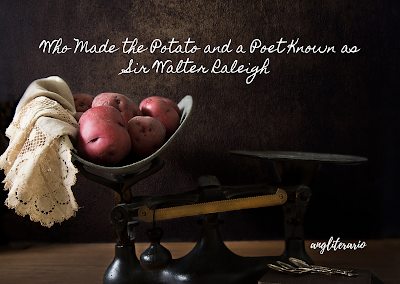A Review of Joshua Mehigan's Essay - " I Thought You Were a Poet"
I knew I was never going to be a poet the day I chose to be happy.
 |
| source: canva.com |
Joshua Mehigan's essay - "I thought You Were a Poet" - just confirmed that. Winner of Poetry Foundation's editor's prize for
feature article, he talked about the seemingly psychotic behaviors of popular
poets throughout the centuries which seemed to be the main attracting element
that poets had for the public that embraced them. The mysterious
eccentricities that made them both repulsive and intriguing.
How many poets have you actually known by the poems that they wrote? Isn't it more like reading their biographies first or hearing about their many women or drinking habit or in the end how they killed themselves. And then you want to read their poetry to see whether the stories are true.
How many poets have you actually known by the poems that they wrote? Isn't it more like reading their biographies first or hearing about their many women or drinking habit or in the end how they killed themselves. And then you want to read their poetry to see whether the stories are true.
As if out of those
verses you could watch an HD version of their lives.
Joshua Mehigan started his essay with an interpretation of Dryden's life as he imagined it. And then went on to talk about the weird and the idiosyncrasies of such poets after Enheduanna. He thought that the 18th century poets brought this on us. And the 19th century poets and thereafter drank it like an elixir to live in poetry world forever. In the room of requirements for verses, a dose of psychosis and depression is on the list.
Joshua Mehigan started his essay with an interpretation of Dryden's life as he imagined it. And then went on to talk about the weird and the idiosyncrasies of such poets after Enheduanna. He thought that the 18th century poets brought this on us. And the 19th century poets and thereafter drank it like an elixir to live in poetry world forever. In the room of requirements for verses, a dose of psychosis and depression is on the list.
"Fashion, which hyperbolizes everything until it’s both excessive and compulsory, must have something to do with the literary dimension of poetic madness. Still, nothing could be more obvious than the fact that some deep connection exists between “madness” and the compressed thought and emotion typical of memorable art. When I haphazardly list twenty-five poets I’ve known—most, as it happens, with books, and some with big awards—the group includes two suicides, two attempted suicides, twelve on meds, three who’ve been committed, and two treated with electroconvulsive therapy. There are fifteen addicts, mainly recovering (eleven alcoholics, assorted coke and heroin addicts, and an opium addict). Only three have no mood issues or addictions. But these aren’t simply occupational hazards. Extremity, natural and artificial, often helps poets wrest something sublime from the “dividing and indifferent blue.” For many poets, it is crucial, whether as a pitiful love obsession or a belief that one is actually Lord Byron." —Joshua Mehigan
Some violent reactions when Mr. Mehigan mentioned Lord Byron. But sometimes
when you delve on poetry you start creating hallucinations about life and its
meaning. Sometimes to find meaning. Sometimes to wrestle the demons inside.
You start to think that perhaps you might get them out if only you could
channel Lord Byron into your consciousness.
For me it was Dickinson.
Poetry is inherently personal. It's about stripping a poet's mind, dissecting his unconscious to put meaning in an otherwise haphazard existence.
Poetry is inherently personal. It's about stripping a poet's mind, dissecting his unconscious to put meaning in an otherwise haphazard existence.
As a
reader, it becomes more interesting when we know something about that poet.
Like reading some verse and nodding our heads as if to say, aha! Now I know
everything about you. For instance, the lack of anything personal about me
here probably puts off some and dismisses this blog as impersonal. I'm already
stripping my soul in verses, I should like a bit of privacy after that.
The mind is a dangerous place to be and poets most often go there. Nobody writes about daffodils in the 20th century anymore. It's about humanity and oftentimes the seediness of humanity.
The mind is a dangerous place to be and poets most often go there. Nobody writes about daffodils in the 20th century anymore. It's about humanity and oftentimes the seediness of humanity.
It's depressing.
But it makes for good
poetry and makes the poet mysterious and multi-dimensional. And the modern
reader would agree. Because who reads poetry these days anyway? The cynical
academics and poet wannabes like me.
One day I realized, I will never be a poet.
One day I realized, I will never be a poet.
I wanted to be, once, when I saw
verses in the pain and suffering that was my life. I had to put them in verses
or kill myself.
These days the best I could do is
How I Found the Answer to Life the Universe and Everything. And every nonsensical thing in between. But I do write more love poems now.
Mostly cheesy and only for my husband.
Poetry is a state of mind and
everything inside of you.
"Writing is a socially acceptable form of getting naked in public." —Paolo Coelho
